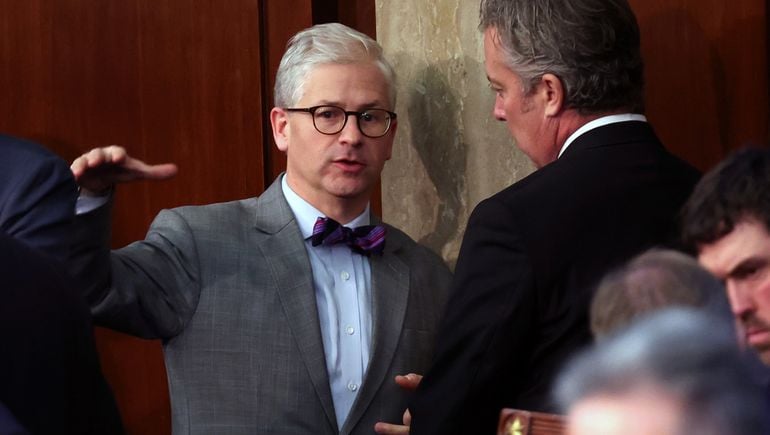Dive Brief:
- Republicans controlling House oversight of the Securities and Exchange Commission are targeting the agency’s proposal requiring companies to disclose in detail risks from climate change, saying the rule poses a threat to U.S. capital markets.
- House Financial Services Committee Chair Patrick McHenry of North Carolina announced Friday the creation of a Republican group focused on vetting Biden administration proposals promoting environmental, social and governance best practices.
- The SEC’s climate disclosure rule “would have a wide-ranging impact on hard working Americans across all walks of life,” according to Rep. Bill Huizenga, R-MI, appointed leader of the nine-member ESG Working Group. The group “will focus on promoting strong, vibrant capital markets, while defending the interests of all retail investors,” he said in a statement.
Dive Insight:
Republicans in the Senate have also put the administration’s ESG proposals in their cross-hairs.
All 49 Republicans in the Senate have backed legislation aimed at nullifying a Labor Department rule allowing retirement plan managers to include ESG factors when making investment decisions. Sen. Joe Manchin, D-WV, also supports the bill.
“At a time when our country is already facing economic uncertainty, record inflation and increasing energy costs, it is irresponsible of the Biden administration to jeopardize retirement savings for more than 150 million Americans for purely political purposes,” Manchin said in a statement.
Twenty-five states sued the Labor Department last month, saying that its recently enacted rule “undermines key protections for” $12 trillion in retirement savings.
The SEC’s climate risk proposal, released for public comment in March, has drawn the most GOP fire.
The announcement about creation of the House Financial Services Committee’s ESG Working Group focused on two main criticisms of the rule, suggesting that the SEC is exceeding its authority and would require companies to disclose business details that are immaterial to investment decisions.
Huizenga cited a Supreme Court decision in June that curbed the authority of the Environmental Protection Agency to limit power plant emissions under the Clean Air Act. In a 6-3 decision, the court cited the “major questions doctrine,” holding that federal agencies need direction from Congress before setting regulations with significant economic or political impact.
“The SEC’s climate disclosure rule is a prime example of this overreach,” Huizenga said.
Under the regulation, CFOs would need to describe on Form 10-K their strategy toward climate risk, including plans to achieve any targets they have set for curbing such risk.
Companies would also need to disclose data on their greenhouse-gas emissions, either from their facilities or through their energy purchases, and obtain independent attestation of their data.
Companies that have already committed to detailed GHG disclosure would need to report on so-called Scope 3 GHG emissions among their upstream and downstream business partners across their supply chains.
Clear, uniform disclosures on the costs from climate change will benefit both businesses and investors, SEC Chair Gary Gensler has said. Businesses will gain detailed insights into potential costs and opportunities, while investors will be able to better gauge risks at specific companies and compare risk levels across industries.
The SEC rule and other administration initiatives focused on ESG standards “are solely an attempt to strong-arm financial institutions and other firms into choking off capital to industries that are foundational to our nation’s economy, yet are continually villainized by the far left,” 12 Republican senators said in a Dec. 7 letter to Biden.
The SEC is poring over 14,000 public comments to its 490-page draft rule and plans to release a final version before May.
The agency rule is part of a broad, ideologically inspired plan, McHenry said.
“Progressives are trying to do with American business what they already did to our public education system — using our institutions to force their far-left agenda on the American people,” he said in a statement.
The ESG Working Group “will develop a comprehensive approach to ESG that protects the financial interests of everyday investors and ensures our capital markets remain the envy of the world,” McHenry said.



